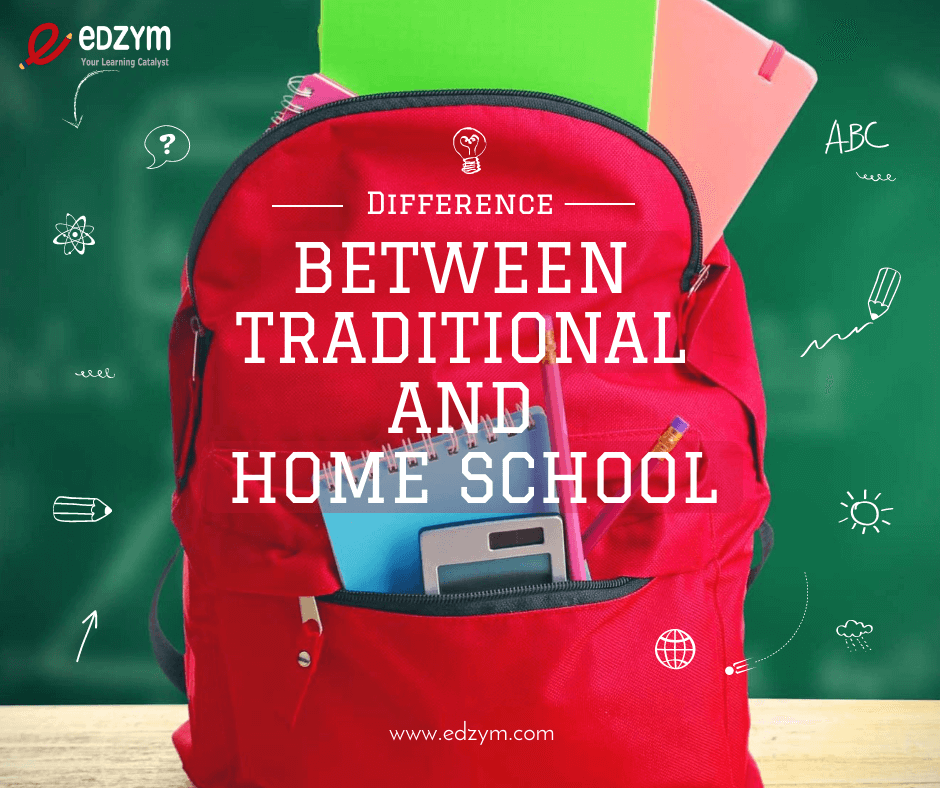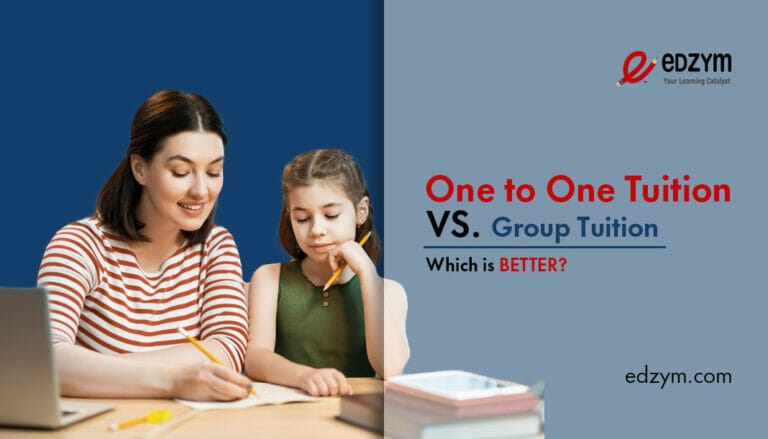Difference between traditional schooling and home schooling
There has always been a debate about whether home schooling or traditional methods of teaching are better for children. Many parents in India are still unfamiliar with home schooling, which causes some confusion and speculation. Among these conjectures is the debate over public vs. home schooling.
The debate over traditional classroom based education institution versus home education has raged for a long time. While many parents appear to believe that the traditional method of learning is the best way to be educated, they tend to dismiss the fact that a home schooling curriculum includes the same things as a traditional school curriculum, only without the presence of peers, and thus is completely equivalent to those in traditional schools or any other form of learning. Similarly, proponents of home schooled argue that it is the superior mode of learning because it keeps a student grounded and allows them to learn at their own pace, in addition to providing a flexible home education schedule.
What is home schooling?
Home schooling is a global progressive movement in which parents educate their children at home rather than sending them to a traditional public or private institution. Home education is chosen by families for a variety of reasons, including dissatisfaction with the educational options available, different religious or educational philosophies, and the belief that children are not progressing within the traditional school structure.

What is traditional schooling?
Traditional schooling or education refers to systematic instruction in useful branches of learning provided by methods common to public schools and educational institutions, directed at an indefinite class of people, and indirectly benefiting the general public because it is of a nature normally provided by the government at taxpayer expense.
Difference between home schooling and traditional schooling
Home schooling
- Home educated students have a very flexible schedule in a way that the curriculum can also be tailored to the child’s preferences. Any curriculum, such as Kindergarten Home learning curriculum, home education for preschool curriculum, Home based preschool curriculum, and so on, can be chosen for a child.
- Home based learning appears to make students more knowledgeable because the absence of peers forces the students to be the sole focus of the educator. This allows students to clear their doubts without hesitation and gain knowledge rather than just memorise.
- One of the most significant advantages of home education is the safe environment. A child who is home schooled learns in the comfort of his or her own home. Parents no longer have to worry about transporting their children to and from school or allowing them to travel alone. They are confident that their child is learning in the comfort of their own homes.
Traditional schooling
- The public schools adhere to a traditional method of imparting knowledge that involves students and teachers in close proximity. The children learn in a classroom with their classmates, and a teacher is always present to supervise them as needed.
- A school is a place where students from all walks of life come together to learn. They are constantly in contact with their classmates, which increases inter-child interaction. This gives them the confidence to approach new people outside of school.
- In public schools, students are constantly guided by their teachers. Teachers and students become more acquainted with each other as the teaching-learning system takes place face to face. Students can also approach their teacher at any time with questions or concerns.
Both home and traditional schooling have their fair share of advantages. But, here comes the question. If both are advantageous for the development of our children then what is the debate over here?
Everything has their equal share of advantages and disadvantages. Even home learning and traditional schooling. So, which one to choose? Which one is better?
Comparison between home schooling and traditional schooling
- Even though both home learning and traditional schooling have equal advantages, it is safe to say that home schooling your children will be a much better option because, in the event of a pandemic, children cannot attend traditional schools, correct?
- It has been observed that educational quality in home schooling is higher than in traditional schools. Home-schooled children learn more quickly than school-aged children because they receive more personal care and grooming. They are more interested in studies that are more personalised than the routine-based courses offered in schools.
- Knowing your child as well as you do, you can plan lessons around them and their interests. You can encourage them to enjoy learning by connecting their education to their interests. There is no better way to implement a child-centred curriculum than through home schooling, as opposed to traditional schooling, which relies on a single teacher for all of the students in the class.
Conclusion
Educational quality in home schooling is higher than in traditional schools. Home-schooled children learn more quickly than school-aged children because they receive more personal care and grooming. They are more interested in studies that are tailored to them rather than the routine-based courses offered in schools.







